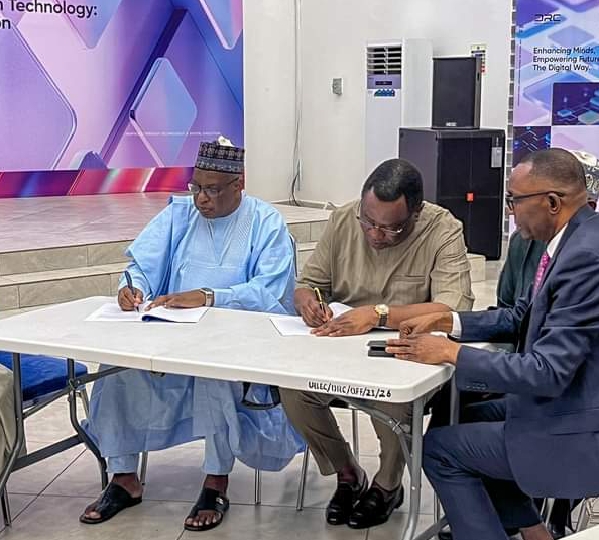The Nigerian Content Development and Monitoring Board (NCDMB) has partnered with the Universal Basic Education Commission (UBEC) by signing a Memorandum of Understanding (MoU) to implement the NCDMB-UBEC Smart Schools Development Initiative (NUSSDI). This collaboration aims to enhance educational infrastructure, especially in regions with high numbers of out-of-school children and underserved rural areas.
In a statement on Sunday, the NCDMB explained that the MoU aims to incorporate technology into classrooms, train teachers and school administrators, and enhance student learning outcomes. At the signing ceremony in Abuja on Thursday, Felix Ogbe, the Executive Secretary of NCDMB, highlighted that the NUSSDI will leverage the strengths and resources of both agencies to establish smart schools with modern technology and new teaching methods. He believes this initiative will equip future leaders with the knowledge and skills needed to thrive in a digital world.
Ogbe emphasized that basic education is essential for building human capital in Nigeria. He reaffirmed NCDMB’s dedication to developing a talent pool for the country’s oil and gas industry. This focus on foundational education is crucial for Nigeria’s growth and development.
Dr. Hamid Bobboyi, the Executive Secretary of UBEC, highlighted the significance of the MoU as a potential “game changer” for funding and executing basic education initiatives. He remarked that this partnership could significantly impact the lives of children, families, and Nigeria’s future. He also called for increased resources and support for the education sector, emphasizing that collaboration with other agencies and organizations is important to address existing funding gaps.
According to the terms of the MoU, NCDMB will offer training and professional development opportunities for teachers, while both NCDMB and UBEC will work together on various infrastructure development projects. The agreement also aims to create and implement local content programs in basic education, encourage research and development in this sector, and strengthen partnerships between industry and academia.
The Smart Schools Development Initiative is a significant expansion of NCDMB’s efforts to promote digital education and the study of Science, Technology, Engineering, and Mathematics (STEM). As part of these efforts, NCDMB has already established fully equipped Information and Communication Technology (ICT) centers in secondary schools across Nigeria’s six geopolitical zones and trained numerous teachers to improve their teaching effectiveness.
This collaboration is expected to have a lasting positive effect on education in Nigeria, paving the way for innovative learning approaches that will benefit future generations.





